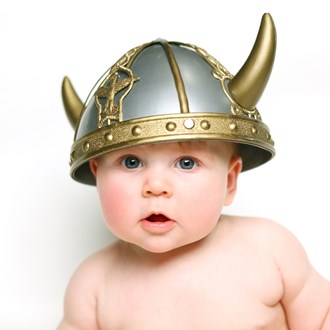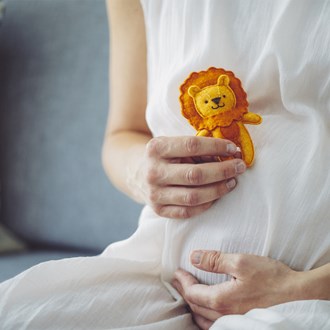What's the best age gap between children?

What works better − having your babies close in age or leaving a big gap in between your children? Linda Barnier reveals the pros and cons of both
By Linda Barnier
November 04 2018
We know that we should wait 30 minutes between eating and swimming, put out the rubbish every week and go to the dentist twice a year. But how long or short a gap should we put between having children?
There are various theories on the ideal spacing of babies. Some feel it’s too exhausting to have children back to back, while others say it’s a great idea as the difficulty pays off later when two infancies end almost simultaneously.
With longer gaps, older children are often (but not always!) keen to get involved and can be a great help by fetching and carrying things, and amusing the new arrival.
In terms of health implications, both short and longer age gaps pose potential problems, says Warren Cann, a psychologist and the executive director of the Parenting Research Centre.
“Studies have shown that waiting 18 to 23 months after the birth of your last child before conceiving is ideal, as there can be health complications for both mother and baby where the interval between birth and conception is very short, and also when it is very long – five years or more,” Warren says.
“What we don’t know is whether or not that is because of the physical impact of having a baby, or if it is more caused by the social problems, like stress or poverty.”
It’s been found an age gap of between two and four years often produces the worst sibling rivalry, while there seems to be less jealousy if the gap is more than five years or less than 18 months.
“But it’s not just the age gap that determines the quality of sibling relationships,” Warren reveals. “For example, gender can play a part.”
The best advice, he says, if you have a choice, is to wait until you feel you can cope with what you have now before you start planning to increase the demands of being a parent.
Keeping kids close together
There are plenty of reasons to have children close together. You might want the kids to grow together and be constant companions, or you just might not have time on your side.
Generally speaking, the closer in age your children are, the harder work it is in the early months and years.
“It is definitely do-able, but having children very close together is stressful,” says Warren. “The support that you have has a significant impact on your stress levels and parenting, too. For example, the mothers of twins or close siblings are at higher risk of postnatal depression.”
The payoff comes when the children are older, as they will hopefully play together and amuse themselves, and looking after them is less work for you.
Financially, with smaller age gaps you will probably have all the necessary equipment from your first baby, such as the bassinette and cot, bath, car seat and highchair, plus hand-me-down clothes and entertainment items such as toys and books.
Childcare may be a consideration, too. If you are working, it may be easier to organise care for two or three children of similar age rather than having years of different childcare arrangements. However, the financial strain may be more as you’re doubling the cost of care.
A little breathing space
For some parents, it takes a few years before they feel emotionally ready to have another baby. Other couples plan a long gap as they believe it allows their children to be individuals, while for others with fertility issues or health problems it just works out that way.
A longer gap of three years or more means you’ll be back caring for a baby just when it seems like you’ve started to get the hang of parenthood.
“On the other hand, you may feel like you’ve had a good break from the breastfeeding and sleep deprivation, and are ready to do it again,” says Warren.
Waiting until your child is older and in preschool, or school, can make it easier for a second-time mum to spend more quality time with each child without feeling like she’s constantly under pressure.
“There are so many benefits to a longer age gap,” believes Warren.
“The older child learns to take a little bit of responsibility for the baby and what it is like to care for somebody. The younger sibling gets stimulation not only from their parents, but also from their older siblings who are constantly playing and talking to them. The other thing with spacing is that there seems to be less competition for parental attention.”
While a longer age gap does mean you may need to restock all your baby equipment or make sure that your old equipment meets the current safety standards, at least you won’t have to double up on things like nappies or formula. You can also spread the cost of actually having the baby and childcare over a few years.













